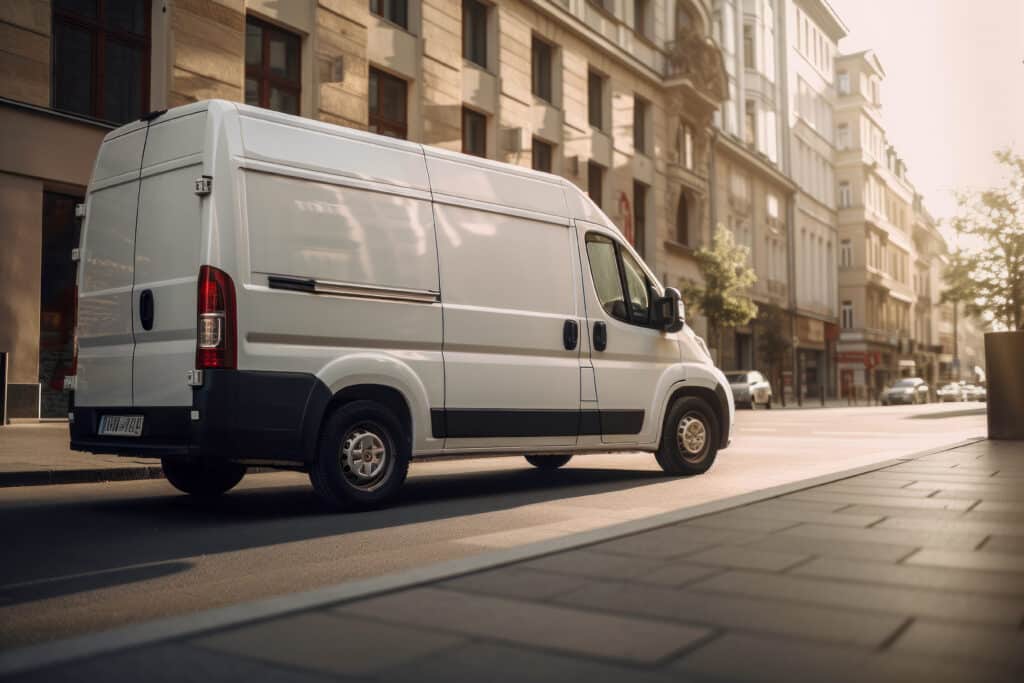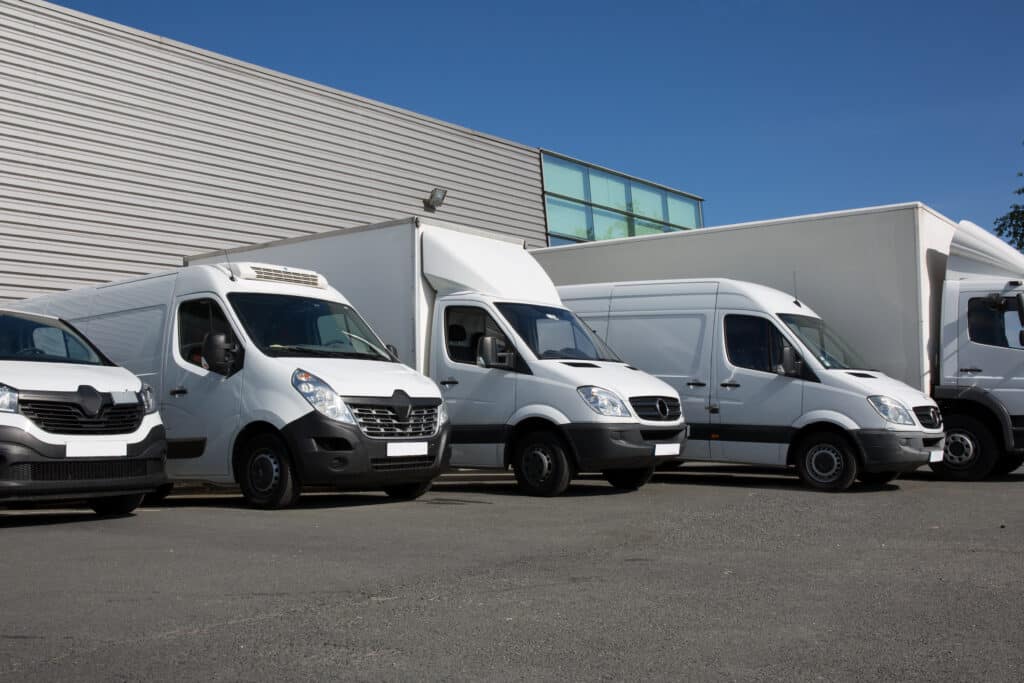“How does business van finance work?”, is a question often asked by UK business owners, especially start ups and those companies looking to expand their operations. Business van finance is a vital solution for many UK companies, offering them the flexibility to acquire and utilise vans for commercial purposes without the need for a large upfront investment. Knowing the various types of financing options available and how they work can help businesses make informed decisions and choose the right option that suits their needs. In this comprehensive guide, we will explore the world of business van finance, the benefits it offers, and the factors to consider when selecting the best financing option for your business.
Understanding Business Van Finance
When it comes to financing a business van, there are several options to choose from. Each option has its own set of advantages and disadvantages, depending on your business needs and financial situation. The most common types of business van finance options include:
Van Leasing (Contract Hire)
Van leasing, also known as contract hire, is a popular financing option that allows businesses to use a van for a fixed period without owning it. In this arrangement, the business agrees to make regular monthly payments to the leasing company for the duration of the contract. At the end of the contract, the van is returned to the leasing company, and the business has the option to lease a new van or explore other financing options.
Hire Purchase
Hire purchase is a financing option that allows businesses to eventually own the van after making regular monthly payments over a predetermined period. The business pays an initial deposit, followed by fixed monthly payments that include interest. Once all payments are made, the business becomes the legal owner of the van.
Finance Lease
A finance lease is a flexible financing option where the business leases the van for a fixed period while having the option to purchase the vehicle at the end of the term. Monthly payments are usually lower compared to other financing options, as they are based on the difference between the van’s initial cost and its residual value at the end of the lease term. The business is responsible for maintaining the vehicle and covering any repairs during the lease period.
Contract Purchase
Contract purchase is a financing option that combines elements of both leasing and hire purchase. The business makes regular monthly payments for the duration of the contract, and at the end, they can either return the van or purchase it for a pre-agreed amount (known as the balloon payment). This option allows businesses to have the flexibility of leasing while also providing the opportunity to own the van if desired.

Factors to Consider When Choosing a Business Van Finance Option
When selecting the most suitable business van finance option, there are several factors to consider:
Length of Contract
Consider how long you need the van for and the duration of the finance contract. Leasing contracts, for example, can range from 12 months to 60 months or longer. The length of the contract will impact the monthly payments and overall cost of financing the van.
Anticipated Mileage
Most finance options have mileage limits that need to be taken into account. Exceeding the agreed-upon mileage can result in additional charges. Consider your anticipated annual mileage and choose a finance option that accommodates your business needs.
Deposit Amount
The initial deposit required for different financing options can vary. A larger deposit typically results in lower monthly payments, while a smaller deposit may lead to higher monthly payments. Consider your budget and cash flow when determining the deposit amount.
Monthly Payments
Monthly payments can vary depending on the finance option, deposit amount, contract length, and interest rate. Evaluate your budget and cash flow to determine a comfortable monthly payment that suits your business needs. For an idea of monthly payments visit our van finance calculator page.
Business Requirements
Consider your specific business requirements, such as the type of van needed, the required payload capacity, and any additional features or customization. Ensure that the finance option you choose meets your business’s unique needs.

The Process of Securing Business Van Finance
The process of securing business van finance typically involves the following steps:
Application
First, you will need to complete an application with the finance provider, which will include information about your business, the van you wish to finance, and the desired financing option.
Credit Check
The finance provider will conduct a credit check to assess your business’s creditworthiness. A good credit score increases the chances of being approved for a finance agreement and may result in better interest rates.
Documentation
If your application is approved, you will receive a finance agreement outlining the terms and conditions, including the deposit amount, monthly payments, contract length, and any other relevant details. Review the agreement carefully and consult a professional if necessary before signing.
Delivery and Contract Activation
Once the documentation is complete and the deposit is paid, the van will be delivered to your business. The finance contract is then activated, and you can begin making the agreed-upon monthly payments.

Business Finance Calculator
Here Is Your Finance Illustration
- Monthly Payment :
- Estimated Interest Rate : 5%
- Total Amount Payable :
*This interest rate is for illustrative purposes only, your interest rate may differ and will be confirmed during your application.
Credit score information
Excellent : This category is for companies with an outstanding credit rating. Your business will be profitable, well established, and have a consistent or growing turnover. With no missed payments.
Fair : This category is for companies with a decent credit rating. They have a history of making payments on time, with possibly a few missed or late payments in the past.
Poor : This category is for companies with a poor credit rating or who may have had financial difficulties in the past. This could include a County Court Judgments (CCJs) on their record.
Conclusion
Business van finance can be an excellent solution for UK companies looking to acquire and utilise commercial vans without making a large upfront investment. By understanding the different types of financing options available, their benefits, and factors to consider when selecting the best option, businesses can make informed decisions that meet their unique needs.
With options such as van leasing, hire purchase, finance lease, and contract purchase, businesses have a wide range of choices that cater to their specific requirements and financial situations. These options offer advantages such as tax benefits, improved cash flow, flexible payment terms, access to the latest models, and reduced maintenance costs.
When choosing a business van finance option, it’s essential to consider factors such as the length of the contract, anticipated mileage, deposit amount, monthly payments, and business requirements. Furthermore, businesses must understand the process of securing finance, including application, credit checks, documentation, and contract activation.
By carefully evaluating their needs and understanding the various financing options, businesses can find the right solution to help them grow and succeed.
How does business van finance work? Business van finance offers numerous benefits for UK companies, including those working with brokers like First Oak Capital. Here are ten advantages of business van finance that can help companies make the most of their resources and grow:
-
- Improved Cash Flow: Financing a business van allows companies to free up capital that would otherwise be tied up in a depreciating asset. This enables businesses to allocate resources to other areas, such as marketing or expansion efforts.
- Flexible Payment Terms: Business van finance options, such as those offered by First Oak Capital, provide flexible payment terms. Companies can choose from various contract lengths, deposits, and monthly payments to find a solution that works best for their budget and cash flow.
- Access to Latest Models: Financing a business van enables companies to upgrade to newer models with better fuel efficiency, advanced technology, and safety features, thereby improving their image and reducing overall operating costs.
- Reduced Maintenance Costs: Leasing and contract purchase options often include maintenance costs covered by the finance provider, allowing businesses to avoid unexpected repair expenses and budget more effectively.
- Tax Benefits: Monthly payments for business van finance can be deductible as a business expense, reducing a company’s tax liability and saving money in the long run.
- Expert Advice from First Oak Capital: As a broker arranging business loans, First Oak Capital can offer expert advice and guidance to companies looking for the best business van finance options. They can help businesses find the most suitable finance solution based on their needs and financial situation.
- Personalized Finance Solutions: First Oak Capital can work closely with businesses to understand their unique requirements and tailor finance solutions accordingly, ensuring the best fit for each company.
- Strong Business Relationships: Working with a broker like First Oak Capital allows companies to leverage their established relationships with various finance providers, increasing the chances of securing the best possible finance terms and conditions.
- Easier Budgeting: Business van finance options with fixed monthly payments make it easier for companies to budget and manage their expenses, knowing precisely how much they need to allocate for vehicle costs each month.
- Faster Approval Process: First Oak Capital’s experience and connections in the industry can help streamline the application and approval process, allowing businesses to secure their business van finance more quickly and efficiently.
By taking advantage of these benefits, UK companies can maximise the value of their investment in business van finance, ensuring they have the resources and flexibility needed to grow and succeed.
Q: What is business van finance?
A: Business van finance refers to various financing options that enable companies to acquire and utilise commercial vans without making a large upfront investment. Options include van leasing, hire purchase, finance lease, and contract purchase.
Q: How does van leasing (contract hire) work?
A: Van leasing, or contract hire, is a financing option that allows businesses to use a van for a fixed period without owning it. The business makes regular monthly payments to the leasing company for the duration of the contract. At the end of the contract, the van is returned to the leasing company, and the business has the option to lease a new van or explore other financing options.
Q: What is the difference between hire purchase and finance lease?
A: Hire purchase is a financing option that allows businesses to own the van after making regular monthly payments over a predetermined period. In contrast, a finance lease enables businesses to lease the van for a fixed period with the option to purchase the vehicle at the end of the term. Monthly payments for a finance lease are typically lower than those for hire purchase.
Q: Can I modify the van during the finance period?
A: This depends on the finance option you choose. With hire purchase and contract purchase, you can generally customise the van, as you have the option to purchase the vehicle at the end of the contract. For leasing and finance lease options, you may need to seek approval from the finance provider for any modifications.
Q: What are the benefits of van finance for new businesses?
A: Van finance offers several benefits for new businesses, including improved cash flow, access to a van without high upfront costs, and increased flexibility.
Q: What happens if I exceed the mileage limit?
A: Not all agreements have mileage limits however if there is one and if you exceed the agreed-upon mileage limit, you may be charged an excess mileage fee. This fee is usually calculated on a per-mile basis and can vary depending on the finance provider and the terms of the agreement.
Q: Can I terminate the finance agreement early?
A: Early termination of a finance agreement is usually possible but may result in penalties or additional charges. Review the terms and conditions of your finance agreement to determine the consequences of early termination.
Q: Do I need a good credit score to secure business van finance?
A: A good credit score increases the chances of being approved for a finance agreement and may result in better interest rates. However, finance providers may also consider other factors, such as your business’s financial stability and trading history, when assessing your application.
Q: What are the tax implications of business van finance?
A: Monthly payments for business van finance can be deductible as a business expense, reducing your company’s tax liability. It is important to consult with a tax professional to understand the specific tax implications for your business based on the chosen finance option.
Q: Are there any additional fees or charges associated with business van finance?
A: Additional fees or charges may apply depending on the finance provider and the terms of the agreement. These may include administration fees, excess mileage charges, or penalties for early termination. Be sure to review your finance agreement carefully to understand any additional costs.
Q: Can I change the terms of my finance agreement during the contract period?
A: Changing the terms of a finance agreement during the contract period may be possible, depending on the finance provider and the specific circumstances. However, this may result in changes to your monthly payments or other fees. Consult with your finance provider to discuss any potential changes.
Q: What happens at the end of the finance agreement?
A: The options available at the end of a finance agreement depend on the type of finance option chosen. For van leasing, the vehicle is returned to the leasing company, and businesses can choose to lease a new van or explore other financing options. With hire purchase, businesses become the legal owner of the van after all payments have been made. For finance lease and contract purchase agreements, businesses have the option to purchase the vehicle at the end of the term or return it to the finance provider. The specific terms and conditions will be outlined in your finance agreement.
Q: Can I transfer the finance agreement to another business or individual?
A: Transferring a finance agreement to another business or individual may be possible, depending on the finance provider and the terms of the agreement. However, the new party would need to meet the finance provider’s eligibility criteria and go through a credit check. It is essential to consult with your finance provider to discuss the possibility of transferring the agreement and any associated fees or conditions.

